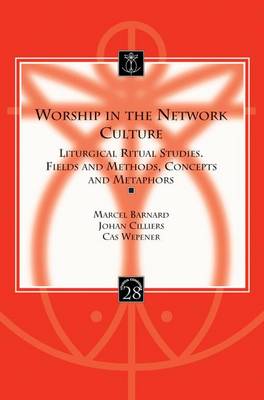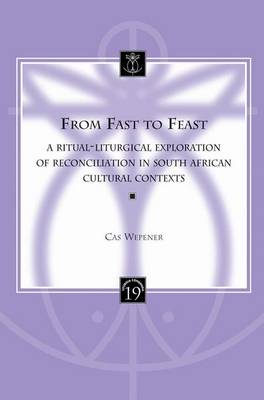Liturgia Condenda
1 primary work • 2 total works
Volume 28
Worship signifies a wide field of liturgical ritual practices that
extend from the Sunday morning service in a mainline church through a
worship service in an African Independent Church to Christian ritual on
the internet and cultural ritual-symbolic practices. Solid and
solidified concepts are no longer sufficient for the study of this
liquid field. This book approaches liturgical ritual from a different
perspective. The first part of this book maps and explores the field of
liturgical ritual studies. The second part of the book takes a first
step in the process of conceptualisation and elaborates on the
sensitising concept of liminality. In part three various aspects of the
field are elaborated on in six double perspectives:
bricolage/particularity, language/silence, image/sound,
embodiment/performance, play/function, time/space. Part four reviews the
road that the book has covered to this point from the two theological
perspectives that characterise Protestant worship: Sacrament/Word and
Prayer/Worship.
extend from the Sunday morning service in a mainline church through a
worship service in an African Independent Church to Christian ritual on
the internet and cultural ritual-symbolic practices. Solid and
solidified concepts are no longer sufficient for the study of this
liquid field. This book approaches liturgical ritual from a different
perspective. The first part of this book maps and explores the field of
liturgical ritual studies. The second part of the book takes a first
step in the process of conceptualisation and elaborates on the
sensitising concept of liminality. In part three various aspects of the
field are elaborated on in six double perspectives:
bricolage/particularity, language/silence, image/sound,
embodiment/performance, play/function, time/space. Part four reviews the
road that the book has covered to this point from the two theological
perspectives that characterise Protestant worship: Sacrament/Word and
Prayer/Worship.
v.19
Today, some years after the first democratic elections in South Africa as well as the final report of the Truth and Reconciliation Commission (TRC), it is clear that reconciliation is still needed on all terrains of South African society. More and more people are becoming aware of unchanneled emotions such as guilt, fury, revenge and grief which are still alive in South Africa and which come to fore in different ways. It seems as if reconciliation is a process that will in fact take years, if not generations. The task of the TRC has been completed, but the task of reconciliation on all levels in South African society and the debate surrounding it are far from complete. Very little research has been conducted to understand both the process and the kinds of reconciliation rituals that are needed. And this is exactly the aim of the research described in this book. The research described here aims at making a contribution towards the process of reconciliation in South Africa by specifically looking at one small but important element in that process, namely ritual.
To this end several ritual probes were conducted, including an ethnographic probe describing research by means of participatory observation in local South African communities, as well as a cultural-anthropological, biblical, historical and descriptive probe. From these probes ritual qualities were distilled which can be used for the liturgical inculturation of rituals of reconciliation in South Africa.
To this end several ritual probes were conducted, including an ethnographic probe describing research by means of participatory observation in local South African communities, as well as a cultural-anthropological, biblical, historical and descriptive probe. From these probes ritual qualities were distilled which can be used for the liturgical inculturation of rituals of reconciliation in South Africa.

